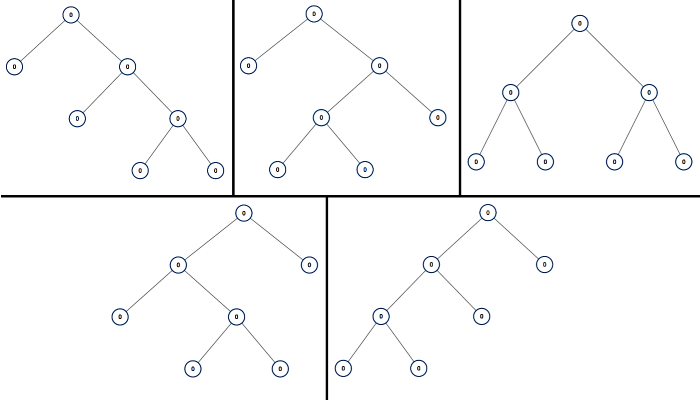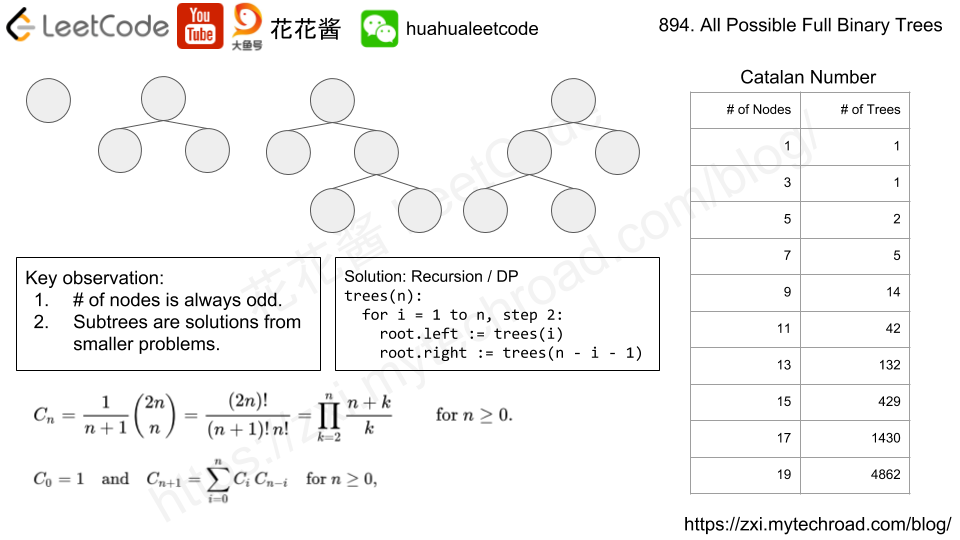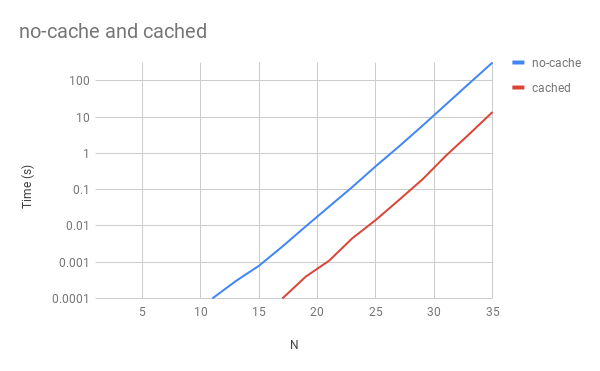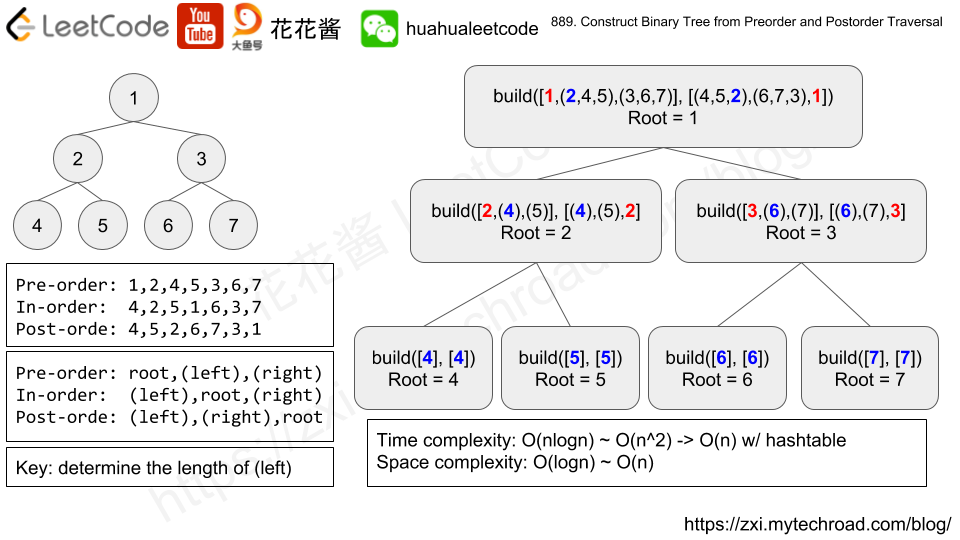Problem
Given a tree, rearrange the tree in in-order so that the leftmost node in the tree is now the root of the tree, and every node has no left child and only 1 right child.
Example 1:
Input: [5,3,6,2,4,null,8,1,null,null,null,7,9]
5
/ \
3 6
/ \ \
2 4 8
/ / \
1 7 9
Output: [1,null,2,null,3,null,4,null,5,null,6,null,7,null,8,null,9]
1
\
2
\
3
\
4
\
5
\
6
\
7
\
8
\
9
Note:
- The number of nodes in the given tree will be between 1 and 100.
- Each node will have a unique integer value from 0 to 1000.
Solution: In-order traversal
Time complexity: O(n)
Space complexity: O(n)
C++
|
1 2 3 4 5 6 7 8 9 10 11 12 13 14 15 16 17 18 19 20 21 |
// Author: Huahua // Running time: 64 ms class Solution { public: TreeNode* increasingBST(TreeNode* root) { TreeNode dummy(0); prev_ = &dummy; inorder(root); return dummy.right; } private: TreeNode* prev_; void inorder(TreeNode* root) { if (root == nullptr) return; inorder(root->left); prev_->right = root; prev_ = root; prev_->left = nullptr; inorder(root->right); } }; |
Java
|
1 2 3 4 5 6 7 8 9 10 11 12 13 14 15 16 17 18 19 |
class Solution { private TreeNode prev; public TreeNode increasingBST(TreeNode root) { TreeNode dummy = new TreeNode(0); this.prev = dummy; inorder(root); return dummy.right; } private void inorder(TreeNode root) { if (root == null) return; inorder(root.left); this.prev.right = root; this.prev = root; this.prev.left = null; inorder(root.right); } } |
Python3
|
1 2 3 4 5 6 7 8 9 10 11 12 13 |
class Solution: def increasingBST(self, root): dummy = TreeNode(0) self.prev = dummy def inorder(root): if not root: return None inorder(root.left) root.left = None self.prev.right = root self.prev = root inorder(root.right) inorder(root) return dummy.right |



